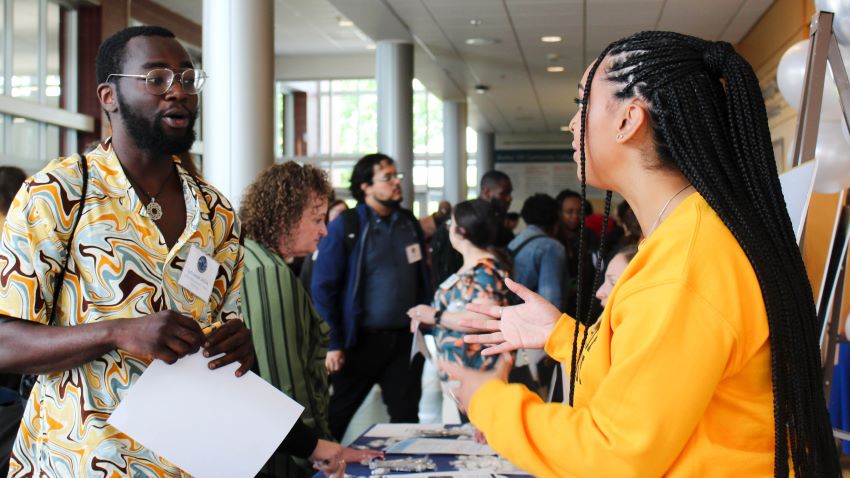Research & Insights / Partnership in Action over the Last Year
Partnership in Action over the Last Year

Spotlighting positive examples, coordinating partnerships and coalitions, and centering the voices of those most impacted are three of EdVestors’ core strategies for school improvement and systems change. Throughout the last school year, we’ve had the privilege of leading, participating in, and highlighting several notable collaborative, collective efforts with educators, administrators, researchers, and community partners.
Spotlighting Positive Examples: the School on the Move Prize
A core part of the School on the Move Prize is the research conducted on the winning school’s improvement strategies. Each year we conduct research on the successful strategies of the winning school and disseminate the findings to the field. For the 2021 School on the Move Prize Winner, the Otis Elementary School in East Boston, EdVestors collaborated with Learning Experience Design Research (LXD Research) to create an actionable toolkit based on their promising strategy of academic family planning.
The Academic Family Engagement Toolkit is an actionable guide to effective family engagement with consideration of a school’s context, capacity, and needs. The toolkit was presented at the Better Together Summit, a statewide convening focused on strengthening family-school partnerships, last October, to share their strategies with other Massachusetts schools.
The 2022 School on the Move Prize was awarded to the Gardner Pilot Academy (GPA). GPA attributes its remarkably high student and family engagement to its community hub school model, which is built on close partnerships with over 30 community organizations that provide services during the school day, after school, and over the summer.
The variety in their community partnerships, Stop & Shop, Catie’s Closet, Boston Housing Authority, to Tech Goes Home, demonstrates their holistic approach to meeting the needs of their community to remove non-academic barriers to learning.
Coordinating Partnerships and Coalitions: New Skills Boston
New Skills Boston is a cross-sector partnership to improve systems, eliminate structural barriers, and make quality career pathways accessible to more students at Boston Public Schools, Bunker Hill Community College, and UMass Boston.
As the lead partner over the last three years, we’ve seen the power of bringing cross-sector partners together to tackle common problems. Key accomplishments from this partnership approach include:
- A simplified transfer process between Bunker Hill Community College and UMass Boston, using a data-driven case study to understand common barriers.
- New and strengthened dual enrollment and early college partnerships between BPS high schools and Bunker Hill and UMass Boston.
- A coordinated, holistic, and equitable college and career advising process in grades 6-12 across BPS.
This collaborative work is seeing results at the student level as well. Over 2,800 BPS students are enrolled in pathways programs, an increase of 29% since the 2019-2020 school year and pathways students consistently have a higher senior class graduation rate than non-pathways students.
Centering Those Most Impacted: Racial Equity Seed Fund
EdVestors’ Racial Equity Seed Fund work meaningfully involves those most impacted by racial inequities in schools in decision-making, solution development, and implementation.
An example of how schools have collaborated with students and families through this work is the work done at the Mozart Elementary School. The Mozart’s School-Based Equity Roundtable (SBERT), a group made up of students, teachers, and families identified several equity issues within the school including gaps in student engagement in enrichment opportunities among students of color and other marginalized populations.
As a school community, the Mozart involved students and families in designing surveys and collecting data to better understand the root cause of these issues. The SBERT found that most enrichment opportunities were occurring outside of school and that transportation and family schedules made it difficult for all students to access them. Armed with this critical data, the Mozart changed their classroom schedule to include an in-school enrichment block.
Our work over the last year has shown that partnering is essential to school improvement and systems change. But much still needs to be done and we are looking forward to entering the next school year building off of this synergy and momentum.




